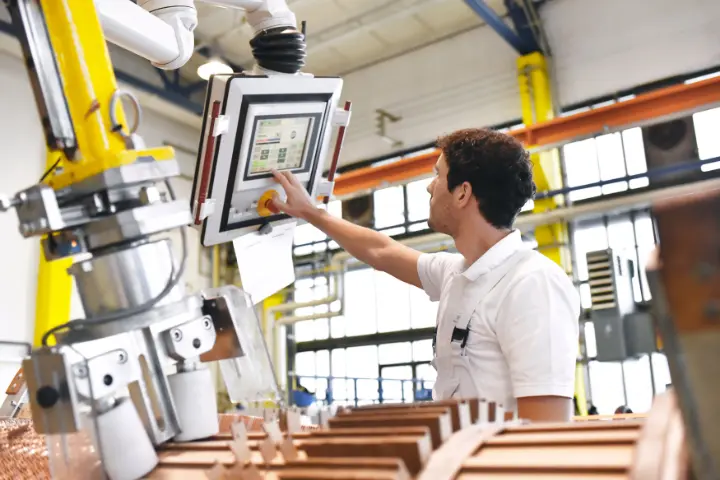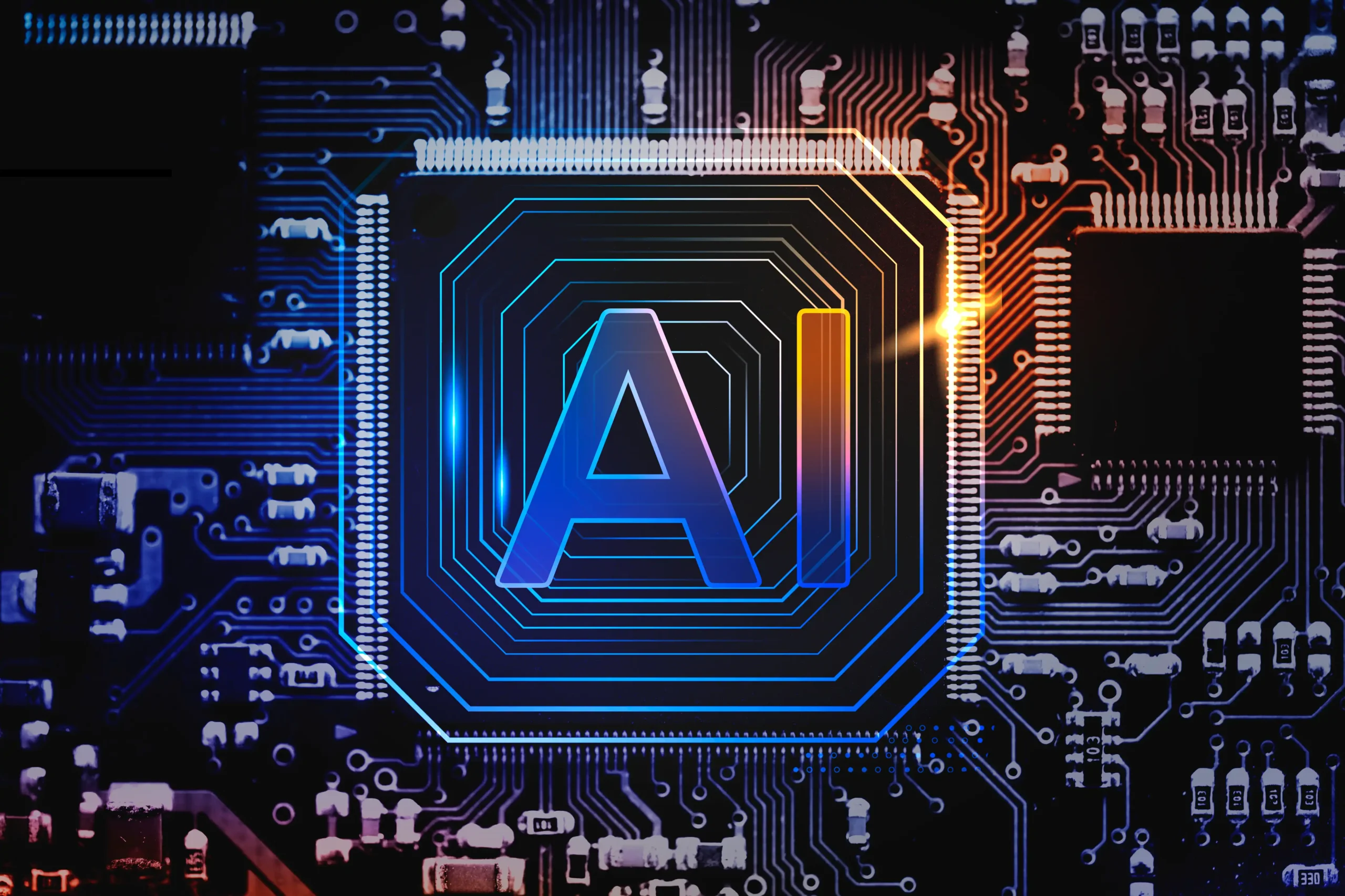As a manufacturing manager, industry leader, or IT leader, you’re likely familiar with the constant challenges of optimizing workflows, minimizing downtime, maintaining strict quality control, and effectively managing costs. Traditional approaches, while valuable, often fall short of keeping up with today’s fast-paced, highly competitive landscape. This is where AI agents come into play, offering innovative solutions to these persistent problems.
AI agents, powered by machine learning and real-time data analytics, are redefining the manufacturing industry. From predictive maintenance to production optimization, these intelligent systems offer powerful ways to enhance your operations and stay ahead of the competition.
What Are AI Agents in Manufacturing?
AI agents are intelligent systems that leverage advanced algorithms and data analytics to streamline manufacturing processes. Here’s how they can help:
- Predict equipment failures: AI agents use data to identify equipment breakdowns before they occur, reducing downtime and maintenance costs.
- Optimize production schedules: By analyzing production data, AI agents can help you plan and schedule production with precision, ensuring maximum efficiency.
- Enhance quality control: These agents detect defects early, helping to maintain high product quality while reducing waste.
- Reduce operational costs: AI agents streamline processes, minimizing waste, improving resource management, and reducing operational costs.
AI agents are no longer a luxury for manufacturers—they’re necessary for staying competitive and driving innovation in a fast-evolving industry.
Do you know how is technology cutting healthcare costs and transforming access for all?
Discover how tech is reshaping healthcare with Luká Yancopoulos, the young CEO revolutionizing supply chains to lower healthcare bills and improve access.
Listen Now!
Benefits of AI Agents in Manufacturing
1. Improved Efficiency
AI agents automate repetitive tasks, optimize workflows, and reduce bottlenecks. This leads to faster production cycles, reduced downtime, and improved productivity.
2. Enhanced Quality Control
Machine learning-driven inspections allow for more precise defect detection, ensuring that only the highest quality products are available. This not only reduces waste but also boosts customer satisfaction.
3. Optimized Supply Chain Management
AI agents can forecast demand, manage inventory levels, and suggest the best suppliers. By analyzing procurement and logistics data, they help optimize the entire supply chain, improving efficiency and reducing costs.
4. Process Optimization
By continuously monitoring production, AI agents adjust parameters to enhance product quality, consistency, and energy efficiency. This reduces material waste and makes manufacturing more sustainable.
5. Improved Worker Safety
AI agents analyze safety data to identify patterns and risks. They generate insights that help create a safer work environment by facilitating communication about safety concerns and best practices.
6. Data-Driven Decision Making
With access to vast amounts of data, AI agents provide actionable insights to guide decision-making at every level, improving strategic planning and operational outcomes.
7. Facilitated Customization
AI agents analyze customer preferences and adjust production processes to meet individual demands, enabling manufacturers to offer customized products without sacrificing efficiency or cost.
8. Continuous Learning and Adaptation
As AI agents learn from data inputs over time, they refine their algorithms and improve their performance. This continuous improvement ensures that manufacturing processes stay efficient despite changing market conditions.
9. Competitive Advantage
With AI agents, manufacturers achieve superior efficiency, faster innovation cycles, and better responsiveness to market demands—helping secure a strong competitive position.
How AI Agents Work in Manufacturing
AI agents in manufacturing typically consist of several core components:
- Input: Data collected from sensors, machines, and human operators are fed into the AI system. This includes sensor readings, production metrics, and operational logs.
- Brain: This is where the AI agent processes the information, including:
- Profiling: Defines the role of the agent in the manufacturing environment.
- Memory: Stores historical data and experiences.
- Knowledge: Contains industry-specific information and guidelines that aid in decision-making.
- Planning: Determines the best action for production, resource allocation, and workflow optimization.
- Action: After processing, the AI agent executes the optimized actions, such as adjusting production settings or alerting staff to potential equipment issues.

Applications of AI Agents in Manufacturing
1. Predictive Maintenance
AI agents analyze large sets of technical data to predict when equipment will likely fail, allowing for timely maintenance and reducing unplanned downtime.
2. Quality Control
AI agents help identify defects early by analyzing inspection data, understanding defect patterns, and creating a knowledge base to improve product quality.
3. Production Planning and Scheduling
AI agents consider demand forecasts, inventory levels, and machine availability to optimize production planning and ensure maximum productivity.
4. Supply Chain Optimization
AI agents streamline the supply chain by predicting demand, optimizing inventory, and identifying the best suppliers for cost and efficiency.
5. Energy Management
AI agents help monitor and manage energy consumption, analyzing data to reduce electricity, gas, and resource use, which leads to cost savings and environmental benefits.
6. Inventory Management
By tracking inventory in real-time and predicting future needs, AI agents ensure you have the right amount of stock, reducing overstock and stockouts.
Building an AI Agent for Manufacturing
To successfully implement AI agents, manufacturing leaders need a structured approach:
- Define Objectives: Clearly outline the goals of the AI agent, whether for predictive maintenance, quality control, or another task.
- Choose the Right Tools: Select frameworks and libraries based on your needs.
- Data Collection: Gather and clean data relevant to your manufacturing processes.
- Design Architecture: Create a modular, scalable AI architecture.
- Train the AI: Use machine learning models to train the AI on the data.
- Deploy: Integrate the AI agent into existing systems for seamless operation.
- Monitor and Optimize: Monitor the AI’s performance and adjust as needed.
Performix AI Agents under $10K! Learn More
The Future of AI Agents in Manufacturing
The future of manufacturing is here, and AI agents are at the forefront of this transformation. With their ability to streamline operations, predict challenges, and drive innovation, the growth potential is limitless. For industry leaders and managers, this is the moment to invest in AI technology and unlock new levels of efficiency and productivity. Don’t wait for competitors to get ahead—embracing AI agents today will secure your place as a pioneer in the industry. The time to lead, innovate, and thrive is now. Invest in AI agents and set your business on a path to long-term success and competitiveness.






